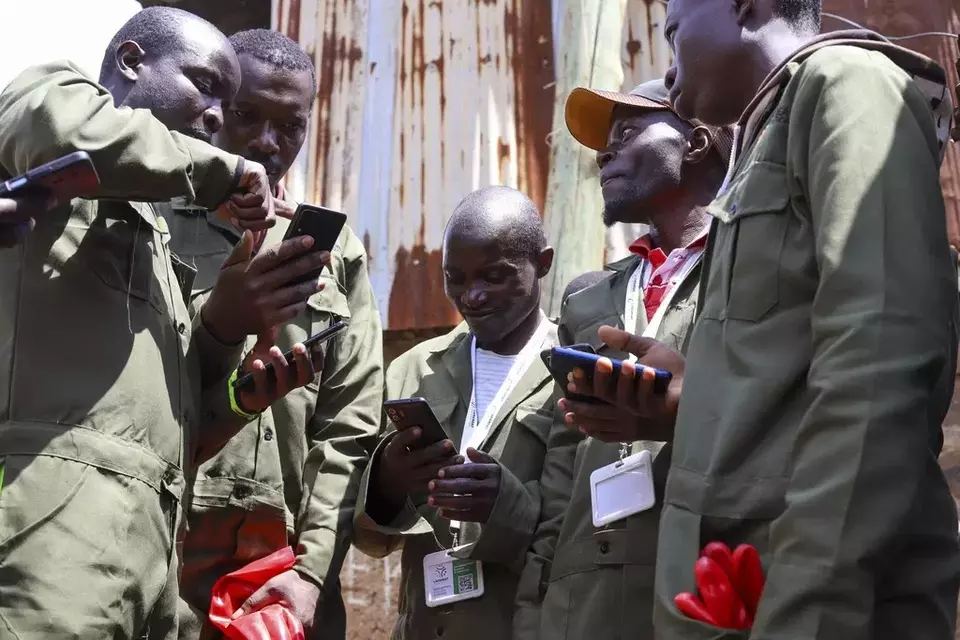In Brief
-
Bitcoin financial inclusion in Kibera enabled wage payments without banks, reducing fees and boosting security for unbanked youth.
-
High BTC exposure poses volatility risks, underscoring the need for education and diversified usage beyond earnings.
-
Sustainable inclusion demands clear KPIs on wallet activity, spending habits, and long-term adoption to measure impact.
Digital assets have taken on a new significance in Africa, with numerous initiatives emerging across the continent.
Recently, AfriBit Africa, a rising fintech company on the continent, aimed to bring Bitcoin directly to the local population.
Amidst the bustling urban slums near Soweto West, Bitcoin found its way within Kibera, effectively providing wages for locals.
The project targeted a specific group: a youth-led garbage collection crew who received a portion of their weekly wages in BTC.
According to the data, Bitcoin financial inclusion is a novelty dating back to the token’s very launch.
CHECK OUT:Inside Btrust’s $1M Bitcoin Grant Strategy for the Global South
The initiative aims to fulfil the long-held dream and has seen around $10,000 worth of bitcoin flow into the local cryptocurrency informal economy.
Ronnie Mdawida, Co-founder of Afribit, championed the core argument, stating that the initiative hinged on Bitcoin’s inherent structure, requiring no formal identification or bank account.
This bypasses a significant barrier preventing Kibera residents from accessing its convenience.
Bitcoin for Informal Economies: Can Crypto Drive Real Financial Inclusion in Unbanked Communities?
During the procedure, various participants of the program shared their views on how using digital assets has affected their livelihood.
Damiano Magak, a 23-year-old who juggles trash collection and food vending, highlight the practical advantages of using Bitcoin over Kenya’s dominant mobile money platform, Mpesa.
The young pioneer hinted that its lower transaction fees, faster transfers, and value-increasing attributes made this option viable.
For Onesmus Many, its appeal lies in its security; holding value digitally feels safer than carrying cash in an area vulnerable to theft.

Members of the Livegreat Foundation who engage in waste management display their bitcoin wallets and QR codes in their mobile phones as they receive payments using bitcoin[Photo:Andrew Kasuku]
This organic adoption hints at the potential for a crypto informal economy.
Navigating the High-Stakes Terrain: Volatility and Access
Sustainable Bitcoin projects offer compelling alternatives; factors like security, reach, and lower entry barriers are all positive aspects, but their full incorporation collides head-on with stark realities.
For instance, Bitcoin’s volatility does give holders a chance to gain more, but it also has an immense downside.
The projects revealed that participants like Magak and Many hold an estimated 70-80% of their total net worth in BTC.
CHECK OUT:Bitcoin Literacy Program Opens for African Women: Apply by June 26
In this particular scenario, this demographic often lives from hand to mouth, with daily essentials like food and ,transportation requiring immediate cash.
Such a concentration poses various risks.
Well-known blockchain expert and fintech entrepreneur Ali Hussein Kassim said:
”That’s dangerous; for someone in Kibera, losing 80% of their wealth is catastrophic.”
A major issue is the lack of a safety barrier, which outshadows its potential as an alternative remittance option.
Additionally, beyond volatility, the practical mobile wallet barrier persists.
Factors such as improved infrastructure, including internet connectivity, access to smartphones, and a baseline level of digital literacy, are scarce in settlements like Kibera.
Despite Kenya recently drafting a VASP, its implementation is still a way off, and its 1.5% tax rule adds another layer of complexity for implementation and deters many traders.
These crypto adoption challenges are not unique to Kibera, echoing experiences from national experiments, such as El Salvador.
Bitcoin financial inclusion, Crypto informal economy, Crypto pilot success, Sustainable Bitcoin projects, Mobile wallet barriers, Crypto adoption challenges, bitcoin adoption in Africa
Towards Sustainable Bitcoin Projects: Lessons from Kibera
The Kibera pilot projects for a crypto informal economy are undeniably significant.
However, it showcases how a lack of publicly available Key Performance Indicators (KPIs) can hinder such success.
Crucial questions lack quantifiable answers:
- How many recipients continue using their Bitcoin wallets actively 3, 6, or 12 months after the initial grant period ends?
- Is Bitcoin being used regularly for transactions beyond receiving wages? What is the average value and purpose of these transactions?
- What percentage of received Bitcoin is spent locally versus held as savings or converted back to cash?
- Has the project demonstrably improved participants’ understanding of Bitcoin’s risks and mechanics, particularly in terms of volatility management?
These questions reveal the program’s impact, preventing it from becoming a charity stunt.
The key goal of sustainable Bitcoin projects is to ensure financial inclusion. Grant funding can seed innovation, but long-term viability demands rigorous measurements against defined KPIs.
The concept of Bitcoin Financial inclusion provides a valuable case study proving that regions like Kibera desire alternative tools that offer better services.
Partnerships focusing on improving reliable, affordable internet access and device availability are crucial to overcome Mobile wallet barriers.
Despite the challenges, Bitcoin in Kibera proved one thing: Africa yearns for better, cheaper, faster, and yield-generating financial services.
We just need to tweak a few things to ensure that Bitcoin adoption in Africa extends beyond a select demographic and becomes a practical tool for economic growth.
Some might suggest taking El Salvador’s approach, but we have different issues, yet more potential than any other region.

